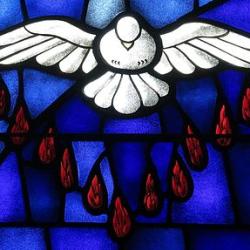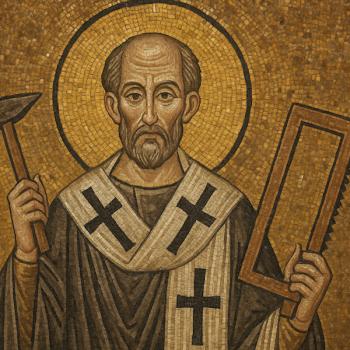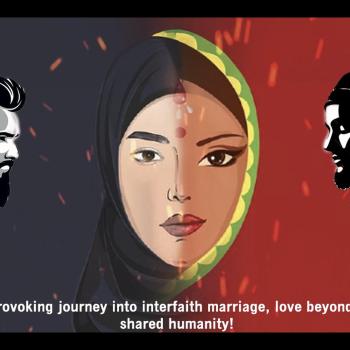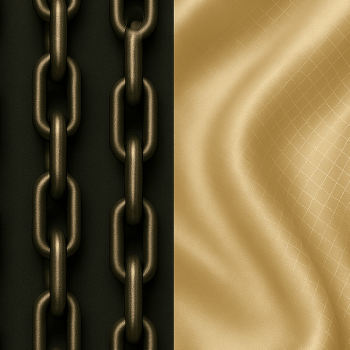When it is no longer off-limits for someone of any possible gender or sexual orientation to admit they have any sort of feelings of gender variance or non-heterosexual attractions, then the project of queer liberation will be over. When queer identity is something that only applies to people who consider themselves queer, and heterosexuals who have sex with people of their same gender are pressured into coming out as gay or bisexual when in fact they may still be predominantly straight, the difficulties of "all-or-nothing" understandings of queerness and being "born this way" come into sharper relief.
Indeed, what I am suggesting here is that in order to see LGBTQ people as fully equal to heterosexual and cisgendered individuals, both legally and existentially (and therefore theologically), a radical redefinition of humanity has to occur. What that might look like is a matter for further elaboration and speculation at a different time, but suffice it to say for now that even the most vocal proponents of LGBTQ equality have often taken on board the same frameworks for self-understanding that those who have prevented full equality have employed in dehumanizing us and invalidating our existences.
Thus, we come to the matter of choice, and the question that is often asked about LGBTQ identities: is it a choice? What has often most upset me in hearing this question debated and discussed in LGBTQ circles is that many out-and-proud LGBTQ people have said "Of course it isn't a choice—I would never choose to live a life like this where I'm hated and persecuted." And yet, would they also not choose the happiness and contentment that can accompany having a same-sex relationship, or that follows when one presents oneself as the gender one knows one is in one's deepest identity? What does this say about the deep and abiding self-hatred and fear that has been ingrained into LGBTQ people by a hostile society and religious institutions, which has required them to accept terms of their asserted equality that still make what is supposed to be their deepest and most essential feelings something to be ashamed of and fearful about? Surely, there are better options than this . . .
Whether it is a choice or it isn't, my suggestion is that even if it is, why can't it be a choice that is protected by law just as much as any other choice happens to be, including (at least in the U.S.) the choice of what religion one would like to follow? The religions that advocate most loudly for the immorality and illegality of homoeroticism and gender variance are also the ones that believe there is no other valid choice for religions apart from their own (and even more specifically their own particular denomination or theological viewpoint). If it were a mere matter of choice, open to anyone and everyone, to have a romantic or sexual relationship with someone of their own gender, or for a person to decide to live their life as a gender other than the one assigned to them at birth by medical personnel, the power and asserted infallible influence of religious institutions and individuals on people's lives would be severely challenged, if not entirely weakened and undermined. Of course, for the people who espouse such viewpoints, that can't happen, but I digress.
If one does view being LGBTQ as simply another and perfectly valid manner of existing in the world, and not as a "condition" to be dealt with, there is still a great deal of choice involved. Many people who are LGBTQ choose to come out, and to live their lives openly and proudly; while many others do so in a more restrained fashion; and all the while, still others are completely closeted, or live "double lives" in total secrecy and even denial of their LGBTQ feelings. All of these are choices, and perfectly valid ones at that—people who live in fear of their lives and livelihoods, both in the U.S. and in many other countries worldwide, cannot easily decide to simply come out, or to move from where they are to places that are more accepting. Their choices must be affirmed as much as anyone else's.
The same religious authorities who would like to suggest that the LGBTQ life is a choice would seek to maintain that viewpoint because one can then not only choose not to be LGBTQ, but even if one finds it unavoidable to be LGBTQ, then one can choose not to "act" in that manner, to identify as such, to come out, to have relationships, to have sex, or to do any of the other things to which the religious authorities object (including dressing in particular ways or listening to certain types of music, etc.). But in accepting the fact that choice is, indeed, involved in this issue—the choice to be out, to speak up for full equality and inclusion, and to advocate for justice and rights for all people—is a powerful option that proves just how important not only having choices is, but that making choices that are difficult or trying but that are nonetheless right is profoundly liberating and even heroic.





